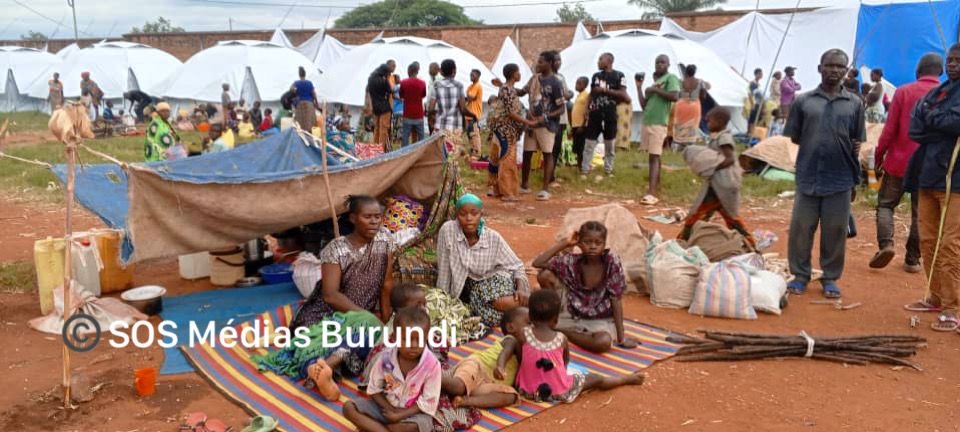Burundi : Congolese refugees face a deadly choice between hunger and war

SOS Médias Burundi
Bujumbura, August 20, 2025 – As the international funding for refugees collapses, Congolese refugees living in Burundi find themselves facing a tragic dilemma : remain in increasingly precarious conditions or return to a country still ravaged by armed conflict.
The United Nations High Commissioner for Refugees (UNHCR) and the World Food Program (WFP), two pillars of humanitarian assistance, are experiencing drastic budget cuts. The situation has worsened since the suspension of funding from the United States Agency for International Development (USAID), following Donald Trump’s return to the White House. At the same time, resettlement programs to the United States have also been suspended, cutting off a path of hope for thousands of refugees.
A Congolese delegation raises awareness about repatriation
A delegation from the South Kivu governorate, which recently withdrew following the recapture of Bukavu, the capital of South Kivu province, by M23 rebels affiliated with the Congo River Alliance (AFC), a politico-military movement hostile to Kinshasa, traveled to Burundi to raise awareness among refugees about preparing for repatriation.
According to this delegation, the Burundian government, the UNHCR, and the WFP have asked the DRC to prepare to welcome its nationals, due to a lack of sufficient resources to continue providing assistance. Burundi, faced with a lack of available land, is unable to integrate refugees into host communities. The African Development Bank (AfDB) is expected to facilitate repatriation. But on the ground, anxiety is outweighing optimism.
« That day, I lost everything. » My house, my animals… and my husband was killed before my eyes. Today, people talk to me about going back, but it’s to die. Over there, the war is still raging, » confides Mireille, originally from Uvira, who took refuge in Musenyi, in southeastern Burundi, with her two children.
Fear outweighs hope
Faustin, who arrived in Burundi in 2002 after fleeing the war between the RCD and the FLF in South Kivu, now lives with his family of six children. Hoping to be resettled in the United States, he sees this program blocked.
« I fled the war over twenty years ago. Peace never returned. Today, the situation is even worse. Asking me to go back now is like telling me to go die. We’re suffering here, it’s true. But dying of hunger is better than dying with a bullet in your stomach, » he explains.
A refugee leader from the Kinama camp in northeastern Burundi, speaking anonymously, sums up the general sentiment :
« Repatriation is a good thing… but only if there is peace. Even today, people continue to flee the DRC. Telling those who have just arrived to leave is a death sentence. »
He urges the Congolese government to restore State authority throughout the country and neutralize all armed groups.
Durable solutions unattainable
Refugees are also demanding measures in Burundi : freedom of movement to seek work and exit permits to other neighboring countries such as Uganda, Kenya, or Tanzania.
With the WFP forced to reduce food rations and the UNHCR facing funding shortfalls, humanitarian organizations are sounding the alarm :
« If nothing changes, thousands of people will be forced to return to areas where war has never stopped, » warns a humanitarian official in Muyinga, in Buhumuza province in eastern Burundi.
A.terrible security context in the DRC
In the DRC, more than 120 armed groups are active, mainly in Ituri, North Kivu, South Kivu, and Tanganyika, responsible for deadly conflicts and violence against civilians.
Burundi currently hosts more than 90,000 refugees, spread across five camps, one refugee site, and urban areas. More than 90% of them come from eastern DRC, with the rest coming from Rwanda, Sudan, Uganda, and the Central African Republic.
Three durable solutions are normally considered for refugees :
- Voluntary return to their country of origin – almost impossible for Congolese refugees due to the war.
- Local integration – inapplicable in Burundi due to a lack of available land and resources.
- Resettlement in a third country – blocked by restrictive immigration measures, particularly in the United States.
Congolese refugees in Burundi remain trapped in a humanitarian impasse where every option seems to carry the risk of death.

